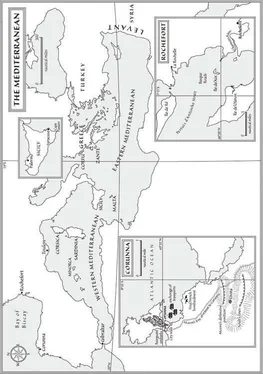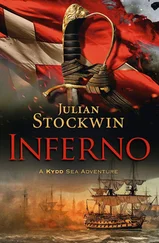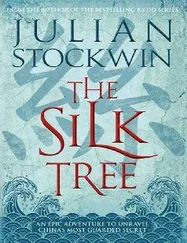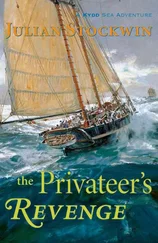Julian Stockwin - The Iberian Flame - Thomas Kydd 20
Здесь есть возможность читать онлайн «Julian Stockwin - The Iberian Flame - Thomas Kydd 20» весь текст электронной книги совершенно бесплатно (целиком полную версию без сокращений). В некоторых случаях можно слушать аудио, скачать через торрент в формате fb2 и присутствует краткое содержание. Год выпуска: 2018, Издательство: Hodder & Stoughton, Жанр: Старинная литература, на английском языке. Описание произведения, (предисловие) а так же отзывы посетителей доступны на портале библиотеки ЛибКат.
- Название:The Iberian Flame: Thomas Kydd 20
- Автор:
- Издательство:Hodder & Stoughton
- Жанр:
- Год:2018
- ISBN:нет данных
- Рейтинг книги:3 / 5. Голосов: 1
-
Избранное:Добавить в избранное
- Отзывы:
-
Ваша оценка:
- 60
- 1
- 2
- 3
- 4
- 5
The Iberian Flame: Thomas Kydd 20: краткое содержание, описание и аннотация
Предлагаем к чтению аннотацию, описание, краткое содержание или предисловие (зависит от того, что написал сам автор книги «The Iberian Flame: Thomas Kydd 20»). Если вы не нашли необходимую информацию о книге — напишите в комментариях, мы постараемся отыскать её.
The Iberian Flame: Thomas Kydd 20 — читать онлайн бесплатно полную книгу (весь текст) целиком
Ниже представлен текст книги, разбитый по страницам. Система сохранения места последней прочитанной страницы, позволяет с удобством читать онлайн бесплатно книгу «The Iberian Flame: Thomas Kydd 20», без необходимости каждый раз заново искать на чём Вы остановились. Поставьте закладку, и сможете в любой момент перейти на страницу, на которой закончили чтение.
Интервал:
Закладка:
The pain of muscles relaxing at the end of the day was only exceeded by the agony of driving them into motion the next day, and shoulders wrung with the day-long weight of a haversack. Rowan didn’t realise until he had to go to Sergeant Dodd’s pack that he’d been quietly extracting some of his gear and adding it to his own to carry.
Dodd said little on the march, but at the end of a long day he cracked jokes and spun yarns from the seven seas that kept Rowan for a little while out of that purgatory on earth.
Then it was the struggle between exhaustion and the sapping cold from rain, snow and hail for a precious few hours of sleep … and in the pre-dawn misery it was a start all over again.
Unbelievably there were women on the march, some with children, babies in their arms even, keeping with their men, no matter the cold and wet, yet at the end of the day caring for them and their brood in a pitiable bid for normality in the fiendish conditions.
As they reached higher altitudes the bitter cold seeped through any attempt at clothing and Rowan’s increasing distress brought on a hopeless homesickness: childish tears formed and his head bent in an extremity of enduring.
He became aware of a figure looming next to him and then the kindly, patient voice of Dodd was telling him he knew for a certainty that the sea and the end of the march were just over a few more ridges. It steadied him, an old soldier trying to reach out to one who, on shipboard, would never have had anything to do with him, and gave him the strength to go on – he could never tell the man what he’d done for him but would never forget as long as he lived.
The narrow track with death in wait on either hand had more afflictions to lay on the suffering army. Draft animals slipped and plunged down ravines, Spanish muleteers deserted at the frightful path they were taking into the north, and rations failed to make their way up the interminable winding length of stumbling soldiers.
Starving men snarled and fought each other for bread, and many left the march under cover of dark to forage in the wilderness. Perspectives altered; things took on a different value. Once, when the shortage of pack animals began to tell, a heavy chest of regimental coin was upended down a steep ravine, the silver tinkling and bouncing in a gay frenzy until all was quiet. In this utterly desolate landscape of scree and crag, a king’s ransom couldn’t buy a loaf of bread, a pair of boots, a warm cloak.
At one point a snowstorm bullied them as they reached a ridge and Rowan’s heart went out when he saw the ground he was trudging forward on was a mass of bloody footprints where suffering men had passed. The welts on his own shipboard boots had given way and now his naked feet showed through, too.
A village firmed out of the mists – the same pillage for wine and debauching, the same ferocious scenes in the morning, and the same mindless tramp on into the bleakness.
Somehow Rowan found the strength and endurance to survive, his young muscles tightening and building, moving on oblivious to the agony of the bitter cold in his feet. On one side of him was the silent, bowed form of Dodd. He managed a smile: they would win through whatever it took.
They descended into a valley with a single bridge. Far ahead Rowan saw a caterpillar of men begin to cross, others behind them in a long, winding file occasionally broken by a cart or two officers riding together.
The scene was a break in the monotony, but then the opposite bank erupted in musket fire.
Some went down under the murderous volley but the effect was miraculous. Men who’d been shambling wrecks now straightened, threw off their packs and charged out to meet the enemy with savage roars. Officers bellowed their orders and, taking their positions like a military exercise at Shorncliffe, they returned fire with a ferocious concentration.
It was electrifying: if the French thought that their harassment would dismay the British they were sadly mistaken, for they’d turned these wretched stumblers into a maddened host and were paying for it.
It finished as quickly as it had started; the enemy faded away and the march resumed in a wary trudge, Moore not allowing a moment’s delay in the resumption of their calvary.
Messengers from the rearguard had told of a swirling mass of Bonaparte’s legions – they were close now but suffering themselves. That they were not falling on Moore’s rear was part of the Emperor’s campaign strategy, to allow the other jaw of the trap to snap shut and bring about a sure victory over the British. That their rear consisted of Moore’s finest – the Foot Guards – was a reason not to try too early.
To a man, Moore’s army knew that only by reaching Corunna and the sea before Soult had they any chance for life.
They marched on.
Quite unexpectedly a pale sun broke through.
And there, not so very far away, was a sight that seized every man with a joy that surged out in a great shout that went on and on.
The glitter of sea.
The pace quickened; other tracks converged and their path broadened to a road – within only a few miles lay Corunna and the navy.
In a delirium of emotion Rowan paced on, and then, between the sombre mountainsides, he saw where a bay spread out. To the right it swept tidily around to a headland but to the left a substantial promontory stretched out seaward, forming a snug and enfolding lee. The promontory itself in the distance was girded by a wall, and within, it was tightly packed with houses. From Kydd’s description this indeed was Corunna.
They’d succeeded.
On the heights above the town and harbour Moore halted their progress.
Scouts were sent out and reported back that there was no sign of Soult’s forward troops. They had won! They were in possession of Corunna before the French and, by defending it and these heights, could safely embark.
Yet hundreds of ships should have been waiting for them at anchor below but only two or three small vessels rode to their moorings, well out.
‘Get that navy courier, Packwood. Now!’ Moore snapped.
Rowan was deposited at the general’s feet, bewildered and not a little frightened.
‘You’ll explain to me now why I don’t see our transports, sir.’
He gulped, mind whirling in contradictions. ‘This is Corunna, sir?’ he asked feebly.
‘Of course it is, you fool!’
It was, as Kydd had said, a perfect place to moor and take off the army. In fact, if he looked out to sea, he could make out white horses and all the signs of a Biscay blow, while within the harbour it was wonderfully calm and placid yet with a broad access to the open sea.
‘Well?’ snapped Moore, his expression ferocious. If he’d been duped into going to Corunna instead of Vigo, both he and his entire army stood to be destroyed in a very short while as Bonaparte took his opportunity and closed in.
Rowan’s mind froze. His captain was the most trusted and true person he’d ever known and would never have let them down.
Miserably he stared out to sea as if it could give an answer.
Around Moore, the command and staff group came together, some curious, others hard-faced, even more with unreadable hostility.
Rowan couldn’t think of an answer. Tears pricked.
Chapter 73

Vigo, earlier
A twinge of guilt touched Kydd as he saw off the two into the duty cutter. It should have been Bray at the least going to brace a commander-in-chief but almost anything could happen in this absurd Iberian war and he didn’t want to lose his first lieutenant at this time. Rowan was really the only one he could spare and just had to present the facts. General Moore would see the problem of foul winds in Vigo and fall in with his altered destination.
Читать дальшеИнтервал:
Закладка:
Похожие книги на «The Iberian Flame: Thomas Kydd 20»
Представляем Вашему вниманию похожие книги на «The Iberian Flame: Thomas Kydd 20» списком для выбора. Мы отобрали схожую по названию и смыслу литературу в надежде предоставить читателям больше вариантов отыскать новые, интересные, ещё непрочитанные произведения.
Обсуждение, отзывы о книге «The Iberian Flame: Thomas Kydd 20» и просто собственные мнения читателей. Оставьте ваши комментарии, напишите, что Вы думаете о произведении, его смысле или главных героях. Укажите что конкретно понравилось, а что нет, и почему Вы так считаете.










